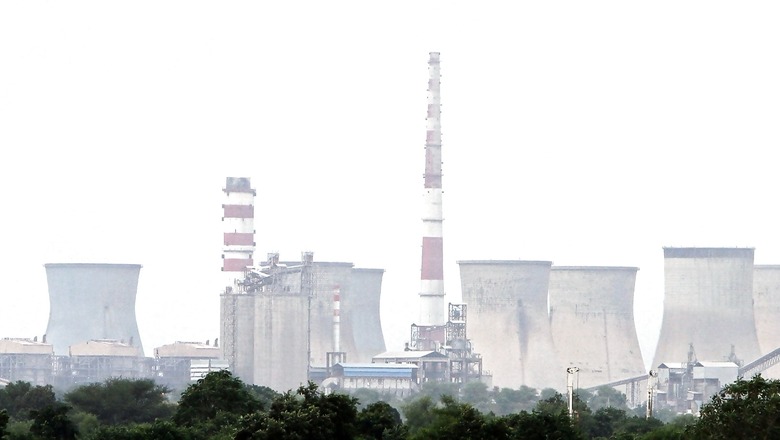
views
With the onset of harvesting season, the Centre has directed all thermal power plants in the country to issue enough tenders to ensure 5% co-firing of biomass along with coal in each plant, with special emphasis on Punjab and Haryana. All power utilities have been asked to complete the procurement process for existing tenders as soon as possible.
In its latest high-level meeting held on Monday, the Ministry of Power said that most thermal power plants, which are also key emission sources, are still far off from meeting the target of 5% co-firing of biomass along with coal, a necessary condition in this year’s Union Budget.
It has now directed the Commission for Air Quality Management (CAQM) to consider penal provisions on plants that are not taking enough steps to curb emissions and not co-firing sufficient quantity of biomass. It was also emphasised during the meeting that that the ministry could consider reducing coal supply of plants that do not comply with its policy on biomass co-firing.
Strict Action For Non-Compliance
Since most power plants have issued long-term tenders and the situation is expected to improve only after the supply will start in those tenders, it was decided that power utilities should start procurement for the short term via alternate methods like spot market or commission agents as the harvesting season has already started, said RK Singh, Union Minister for Power, New and Renewable Energy.
The high-level inter-ministerial meeting was also co-chaired by Union Minister of Environment, Forests and Climate Change Bhupender Yadav who proposed giving ‘must run status’ for the thermal power stations co-firing biomass.
Directions were also given to all thermal power plants in NCR region to install biomass pellet manufacturing plants in their premises, including the private power companies. Power generating companies (GENCOs) were asked to explore options for putting up plant through consortium. “Any non-compliance in this regard would be viewed very strictly, and Principal Secretary (Environment) from each state should act as nodal person for biomass co-firing in the state,” it was decided.
Tardy Progress
As temperatures begin to dip during October, a toxic smog begins to envelop Delhi and the National Capital Region (NCR). A host of factors are responsible for this, significant among them the plumes of smoke emerging from the crop residues burnt in agricultural fields across the northern states.
While several efforts are being made to dissuade farmers from setting fire to the crop residues, a key long-term strategy has been to divert the biomass generated from the harvesting process to thermal power plants, which themselves are major emission sources and can use this to generate renewable energy. However, the progress has been tardy.
According to the government data, though the number of power plants co-firing biomass pellets in the country has increased from eight in 2020-21 to 39 till date, the amount of biomass co-fired is still lagging. As on date, 83,066 MT of biomass has been co-fired in 39 thermal power plants across the country, totalling a capacity of 55,390 MW. In the NCR region, where only 10 TPPs have started co-firing, the biomass co-fired is 22,696 MT, out of which 95% has been done by National Thermal Power Plant Corporation (NTPC).
On the biomass pellet procurement side, the government informed that around 106 MMT of biomass tenders are at various stages of the tendering process. Out of these, order has already been placed for 43.47 Lac MT of biomass tenders by 35 power plants while tendering process is ongoing for 1064 Lac MT.
The high-level meeting was also attended by senior officials from the state governments of Haryana, Punjab and Uttar Pradesh and heads of all power utilities in the NCR region as well.
Read all the Latest News India and Breaking News here




















Comments
0 comment